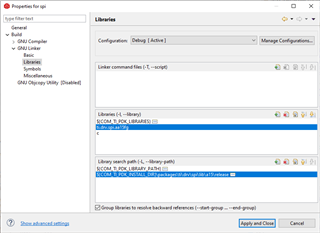Hi,
I am trying to run SPI basic ARM example in Bare metal . when I am trying to build the example I am getting the below error's .
But the same code works fine for BIOS . when i am trying to change it for Bare metal using #define BARE_METAL 1 I am getting these errors. I tried the same procedure for UART example its working fine without any errors for both BIOS and Bare metal. Can any one help me to solve this issue.
Note : I am using ccs version 9.3 and Imported PDK example as per the procedure given in this document.
Thanks in advance.


